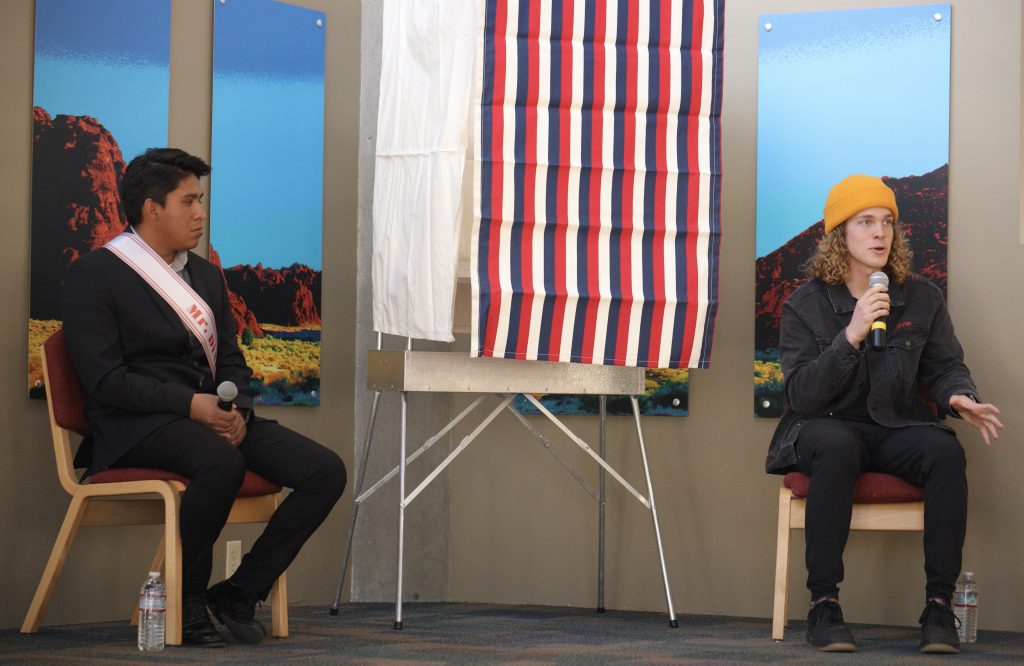Nine more minors joined Dixie State University’s curriculum over the summer, which continues the university’s growth and grants students more opportunities for success.
Minors including biology, math, creative writing, music, chemistry and sociology joined the list of now 12 minors that students can chose from for transcript enhancement and a better fighting chance in today’s competitive post-graduation world.
Bill Christensen, the executive vice president of Academic Services, said new minors provide more opportunities for students to deepen their expertise and stand out from other graduates in both career searches and graduate school applications. He said the lengthening minors list acts as a building block in strengthening DSU’s foundation as it progresses as a university.
“These new minors deepen us,” Christensen said. “Before, we were more like a desert pool that was really broad, but you couldn’t sink beyond your ankles. But now with these minors we’re dredging that out, and we’re getting deeper. It may look the same on the surface, but in fact, there’s a lot more now underneath.”
Christensen said most of the minors were built out of pre-existing emphasis areas within Dixie’s curriculum. The shift away from emphases to minors has been in consideration ever since DSU began offering bachelor’s degrees, and its graduation to a university acted as somewhat of a catalyst to start offering minors, since graduate schools and employers recognize minors with more ease than emphases.
For example, employers and other transcript reviewers are more familiar with the term “minor” than “emphasis,” and the label communicates in universal language the applicant’s specialties in a more specific way, Christensen said.
“(Minors) add to our credibility as a university,” he said. “They’re consistent with the way other schools do things, they enriche our students’ education, and they increase to some degree the depth of our departments and our curriculum.”
Rico Del Sesto, an assistant chemistry professor, said new minor additions, like the chemistry minor, are bringing in a wide spectrum of benefits for not only DSU as a whole, but also students and faculty.
For example, as more and more new minors are approved and strengthen the foundation for more degrees, Dixie can rise to level ground with larger schools.
“This shows the growth of the university, and that we will soon hopefully start competing with some of the bigger and more established universities because we can offer the same programs,” Del Sesto said.
For the students, a minor in, for example, chemistry can grant an advantage over other graduates in applications for medical or graduate school, he said.
“Having that extra stamp can carry a lot of weight,” Del Sesto said. “It shows the extra initiative to go beyond what your core requirements are, and that you got into pretty intense, challenging upper-level classes. Plus, I think it gives students a chance to explore something they wouldn’t otherwise get to.”
Del Sesto said minors benefit faculty in the sense that they offer professors more chances to share their expertise in more profound ways as students have more incentive to fill the higher-level classes. Additionally, the interest in upper-division courses attracts a more diverse faculty as the demand for specialty disciplines increase.
“This gives us the opportunity to use our expertise and experience to teach these upper division courses that are just as exciting for us as they hopefully are for the students,” he said.
Eli Yates, a senior biology major from Santa Clara, said he was considering transferring to another university since he knew how much value a chemistry minor could carry when applying for medical or graduate school. But when the minor was added to DSU’s curriculum, he changed his mind.
“The chemistry minor really helped me stay here,” Yates said. “And it will make me stand out more and give a better foundation in my classes in medical or graduate school. You should always keep your doors open…and minors help that.”
Spencer Alexander, a senior biology major from Santa Clara, said he was also grateful for Dixie’s decision to continue to add minors to its curriculum.
“It’s just an extra edge,” he said. “We are really lucky to have that opportunity to further experience in our fields.”
Christensen said the list of minors will continue to grow with student demand and those with new minor ideas can submit proposals to DSU’s curriculum committee. He said the process is usually fairly easy, since many minors can be built out of emphasis or major curriculum, and the list of minors is expected to continue to lengthen over the next few years.
“There’s more to come; we’re not done,” Christensen said. “We definitely want to listen to (the demand) and respond where we can.”


